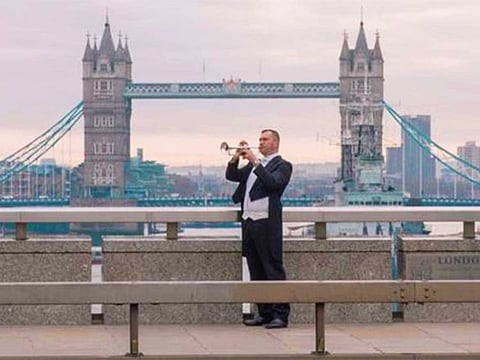Brexit: Britain will change after Friday, 31 January
This is a sad day, one that marks passing of the day into the cold dark night of isolation

In London earlier this week, I took a leisurely stroll around the front of Buckingham Palace. Queen Elizabeth wasn’t at home — the Union Jack rather than the Royal Standard was fluttering in the breeze on the chilly late-January morning.
There were the usual hordes of foreign visitors standing around the famous gates as soldiers in dark-grey winter coats and bearskin hats stood in sentry boxes or marched crisply along the front of the edifice.
Walking down The Mall, the wide ceremonial avenue that leads from the Admiralty Arch near the foot of Trafalgar Square through St. James Park and opens out in front of the palace, I could make out the Union Jack flag flying at the top of Big Ben, the clock that marks time for Britons and their nation. The trees are bereft of leaves on this eve of Brexit.
It is Britain turning its back on the continent of Europe, on liberalism, on the hopes of a post-Second World War generation who rebuilt the great and little nations of Europe brick by brick; who dreamed of institutions that would unite; who believed that there was more that unites than dividesMick O’Reilly
Most of the complex that includes Big Ben and the Houses of Commons and Lords is now a building site, wrapped in sheathing and scaffolding as it undergoes a multibillion pound refurbishment that will last for most of the next decade.
Yes, there is a massive construction job under way — a full makeover at the heart of the British political system.
And come 11pm, as the hands on that Big Ben clock signal a new era in British history — one where the nation has, in the so tired cliché of Brexiteers trotted out so repetitively these past 43 months since that fateful referendum night, taken back control.
There won’t be any chime come the witching hour — no booming Brexit Big Ben bong — to mark the passing of this era.
Nor should there. Silence is more appropriate.
Turning its back on EU
Yes, this is a sad day, one that marks the passing of day into the cold dark night of isolation. It is Britain turning its back on the continent of Europe, on liberalism, on the hopes of a post-Second World War generation who rebuilt the great and little nations of Europe brick by brick; who dreamed of institutions that would unite; who believed that there was more that unites than divides; and who dared to give people the opportunity of working where they wanted, moving freely, and selling their goods across a common market.
And that prosperity has brought peace.
I climbed the steps into Waterloo place, a manicured public space bordered by statues of figures from the great British past.
Waterloo. A great battle more than two centuries ago in the fields surrounding Brussels, a British victory that ended Napoleon’s dreams of a Europe under his laws and codes, republican values and equality.
There’s a statue there to a grand old Duke of York who commanded armies back then. There’s the memorial to King Edward VII, the eldest son of Queen Victoria and Prince Albert who ruled for almost a decade up to 1910. He was related to most of the ruling houses of Europe then — a reminder that even after 110 years, the United Kingdom and continent were bound by blood.
Here, in this splendid corner of London, with its bronze statutes and colonnaded buildings, wrought iron fencing and homage to generals and men of military might — in the last hours of 47 years of the United Kingdom and its place in Europe — you can feel the burden of history cast its shadow down the centuries.
Is this the control that those backing Brexit have so deeply craved?
Frozen wasteland
In one corner of a parkette stands the unmistakable figure of Captain Robert Scott of the Antarctic. The explorer stands forever leaning forward into an eternal blizzard, boldly striding for the South Pole, leading his small team onwards to claim the prize for being first to reach the frozen wasteland at the end of the Earth.
The tragedy is that the team did indeed reach that point only to discover that they had been beaten to it by five weeks by the Norwegian Roald Amundsen in early 1912. Their efforts were all in vain. Overstretched, they perished on the return leg — but Scott and his men died heroes, a frozen embodiment of courage and adventure and going it alone.
Brexit is a little like that too, is it not? Courage and adventure and going it alone …
In the years to come, will they erect statues in these granite squares to the men who have cut the ties and cast the European continent adrift? Will there be a plinth to Nigel Farage, a column to Boris Johnson other than those he penned in the Daily Telegraph to set these times in motion?
Or will there be a headstone, marking the demise of a dream, a Brexit day when more than the trees are bereft of leaves? It is those leavers are bereft.
— Mick O’Reilly is the Gulf News Foreign Correspondent based in Europe



